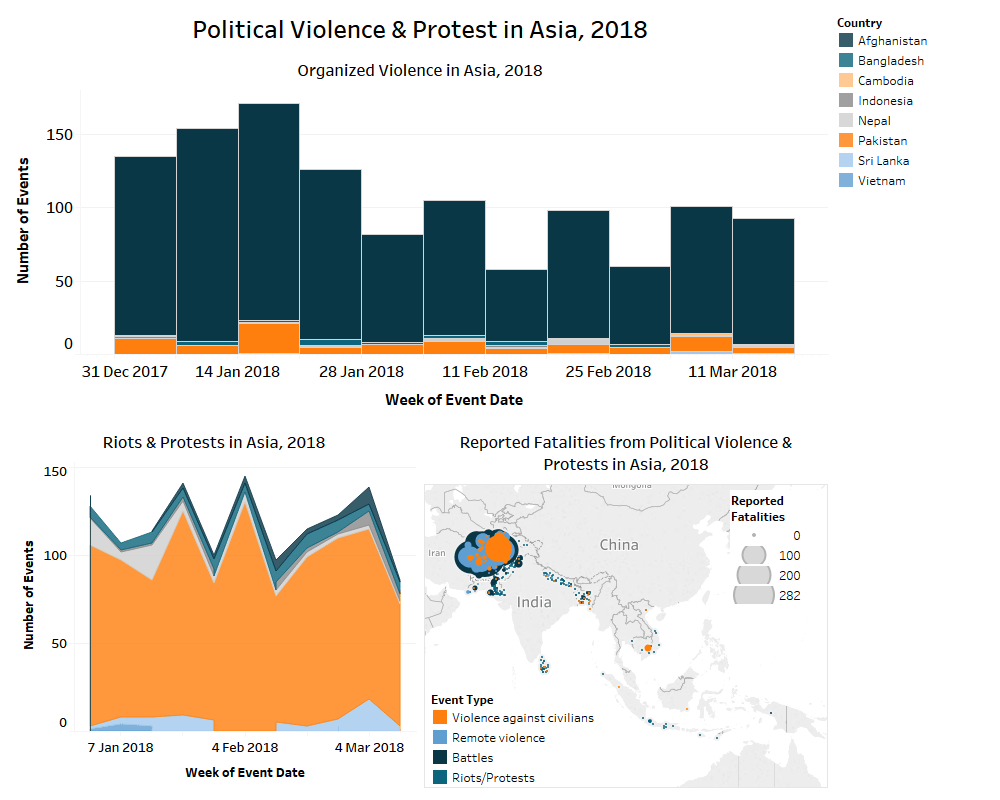There was not a significant change in the levels of political violence and protests in South and Southeast Asia during the week of March 11, with the exception of Afghanistan.
In Afghanistan, the number of military operations against the Islamic State, as well as the number of reported fatalities stemming from these operations, increased last week compared to the week prior. Both Afghan and NATO airstrikes on Islamic State positions in the provinces of Nangarhar and Jowzjan resulted in the majority of the reported fatalities. About half of the Afghan airstrikes were part of joint operations to raid ground troops supported by the Afghan Air Force.
In Sri Lanka, reported violence has subsided following last week’s anti-Muslim riots and the subsequent declaration of a national state of emergency (see CNN, 8 March 2018). No violent events have been reported after 8 March.
Protest movements continued to take place in other Asian countries. Over 60% of the protests in Pakistan took place in Sindh province where health workers and government clerks have been staging separate province-wide protest agitations demanding improved work benefits. Following last week’s deadly shooting of land-right protesters in Cambodia (see Radio Free Asia, 9 March 2018), farmers and villagers again staged protests over land right issues this week. In Bangladesh, supporters of the Bangladesh Nationalist Party (BNP) continued to protest for the release of party chairman, Khaleda Zia, from jail.
(Data on India [including Jammu & Kashmir], Thailand and Myanmar have not yet been released; trends are hence not explored above.)







